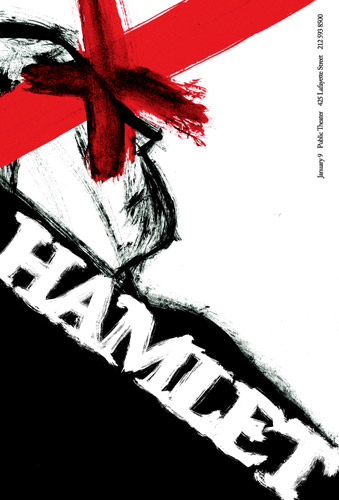Motivated to Action by Revenge In Act Four, Claudius sends Hamlet to England out of revenge for the stunt he pulled at the play in front of the entire court. On his way to England, Hamlet runs into Prince Fortinbras and is moved to action by his passion and determination for vengeance. Meanwhile in Denmark, Laertes learns of his fathers death and swears to avenge him with the help of King Claudius.
|
||
 http://www.thirdarchive.net/blog/images/hamlet.png  http://www.leislschrader.com/print/3/images/1.jpg |
In scene four Hamlet says, "That have a father kill'd, a mother stain'd, Excitements of my reason and my blood, And let all sleep? while, to my shame, I see The imminent death of twenty thousand men, That, for a fantasy and trick of fame, Go to their graves like beds, fight for a plot Whereon the numbers cannot try the cause, Which is not tomb enough and continent To hide the slain? O, from this time forth, My thoughts be bloody, or be nothing worth!" This a very powerful quote from the speech Hamlet gives after seeing Fortinbras and his army marching to takeover Poland. Fortinbras's army is going to fight for an insignificant piece of land solely to have it back in their posession because it used to be King Fortinbras's before he died, not because they would profit from it in any way. It is a major turning point for Hamlet because he is inspired by Fortinbras's passion and action to fight for something that has no value but the satisfaction and pride at the end of the day for him. Hamlet is inspired but he is also ashamed because he has something worth fighting for and yet has done essentially nothing to avenge his father for being "kill'd" and his mother "stain'd." This is when his thoughts turn "bloody," meaning vengeful and seeking justice as he hatches his plan. In scene seven Claudius and Laertes have a conversation regarding what they are going to do to Hamlet when he returns. Claudius says, "what would you undertake, To show yourself your father's son in deed More than in words?" Laertes says, "To cut his throat i' the church." And then Claudius replies, "No place, indeed, should murder sanctuarize; Revenge should have no bounds." Laertes has found out that Hamlet murdered his father and wants imminent revenge. Claudius is trying to encourage him to avenge Polonius "in deed more than in words." Laertes wishes to cut Hamlets throat in church and Claudius agrees that revenge should have no limits meaning that church should not be considered a safe-haven when it comes to revenge because murder deserves revenge no matter where it takes place. It is ironic because Hamlet would not kill Claudius while he was praying, but now he is plotting against Hamlet and thinks that murdering him in church is justified, even though he doesn't know that his own life was spared already by Hamlet for a similar circumstance. Hamlet is different from Laertes because to him revenge has limits since he didn't kill Claudius when he had the chance to because he was praying. If he had had the same opportunity, Laertes would've killed Hamlet in a heartbeat. |
|